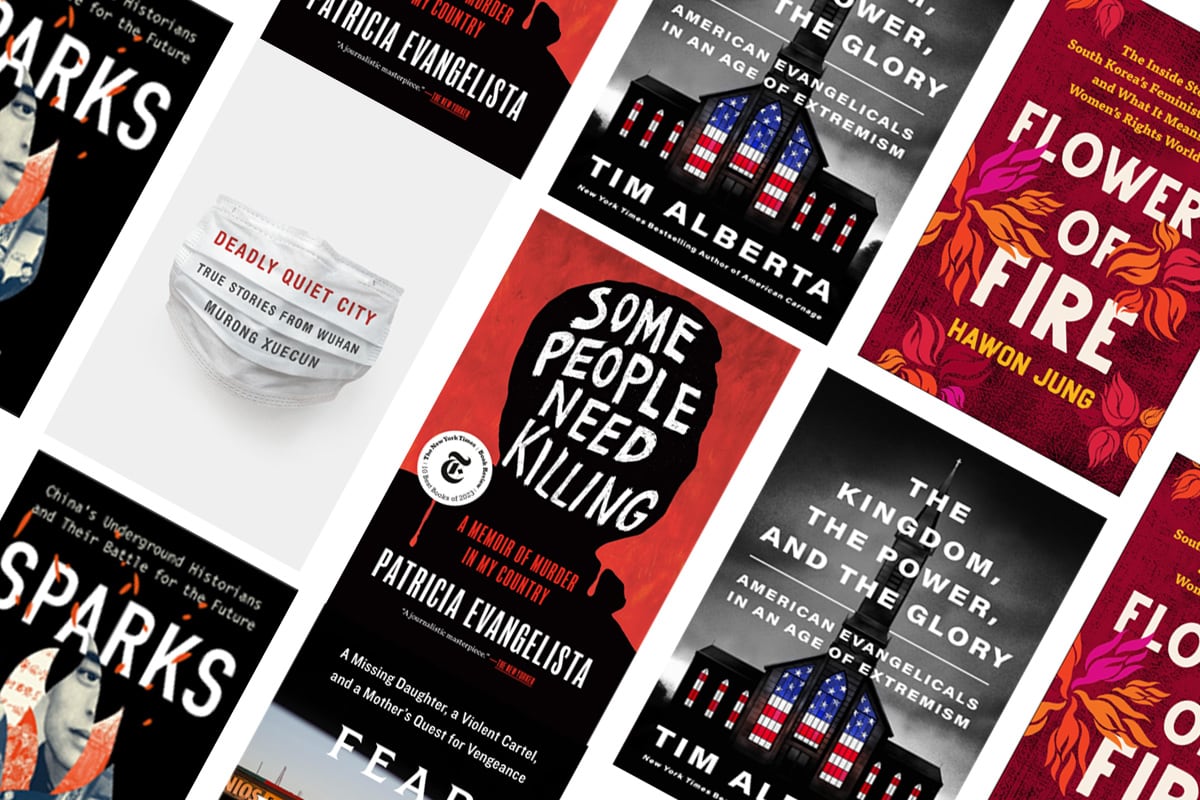In 2020, at the start of the pandemic, a celebrated Chinese writer interviewed people in Wuhan about their experiences during lockdown. His brave and vital book follows eight people, including a doctor at a small hospital, an unlicensed driver of a motorcycle taxi, and a citizen journalist, whose daring efforts resulted in a prison sentence.
Since the early 2000s, the number of Mexicans who have disappeared and not yet been found has risen from a handful to more than 100,000. A journalist for the New York Times tracks Miriam, whose youngest daughter is kidnapped and then killed by the Zeta gang. By focusing on one mother’s extraordinary story, the author evokes the cartels’ painful toll.
A brilliant examination of South Korean feminists’ struggle for equality with global resonance. It describes how many South Koreans still see women only as cooks, cleaners and “baby-making machines” and tells tales of misogyny, from spycams in public toilets to bigots in public office.
This chronicle of the modern evangelical movement in America is a horror story told from the inside. Its author, a staff writer for the Atlantic, is angry and heartbroken as he watches the religious community in which he was brought up being hijacked by power-hungry hucksters and right-wing nationalists.
A rigorously reported look at Rodrigo Duterte’s campaign against illegal drugs from a Filipina journalist. It is also a story of lost innocence, as she learns that the vast majority of people in the Philippines supported their president’s lawless war on drugs, in which perhaps 27,000 people were killed extra-judicially.
A Pulitzer-prizewinning journalist describes the valiant efforts of China’s “underground historians”, a motley and persistent group of academics, artists, film-makers and journalists attempting to correct the official record and provide truthful accounts of history. An insight into the risks that some Chinese take to illuminate the darkest episodes of Communist Party rule.






